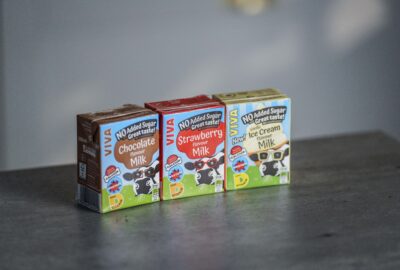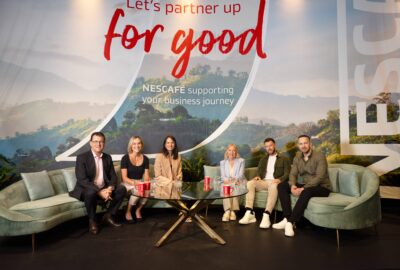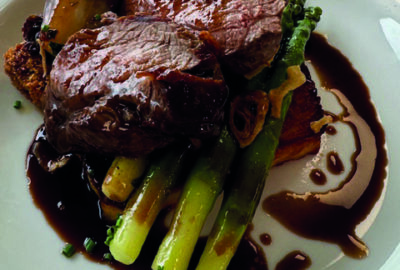CMS School Food based in Blackburn, Lancashire, works with schools to create and manage their own, in-house catering service. Before the pandemic, at least 11 out of the total workforce of 14, spent most of the day on the road driving diesel cars, but following the pandemic, suddenly schools were a ‘no-go’ area and the company had to rethink how to deliver their services.
Seizing the opportunity to become a more sustainable supplier, the company started to question their ethos and practices. “Like many companies, we reinvented ourselves. We had to take all our training online and all appointments were carried out on zoom. At the same time, we noticed our monthly CO2 count had plummeted as we weren’t doing the same mileage.” Liz Greene, sales and marketing manager, explains.
“As a school catering consultancy, which advocates healthy eating and cooking with fresh produce, surely we should be helping to look after the planet that feeds us? We would like to think that the future generations we’re helping to feed won’t be short of food in the years
to come.”
Last year, the company decided to assess how they could change to reduce their carbon footprint. Liz says “We knew the easy bits – changing from diesel cars to hybrid or electric. It was the areas that crossed over between CMC, clients and suppliers that seemed less straight-forward. We realised we needed help to point us in the right direction.”
Liz and company founder Gary Stewart attended the Green Rose Programme, run by Chamber Low Carbon a local initiative to help Lancashire businesses become more sustainable. This comprised of six sessions offering free advice for businesses on how to introduce an environmental management system and work towards achieving the ISO 14001 certification.
Working with schools has been an important part of their plans to achieve certification, reducing food waste through better portion control and production planning. Meat Free Mondays has been introduced on many school menus, while advice has been given to encourage cooks on how they can use leftover food. “For example use veggies in soups and casseroles or today’s leftover mashed potato in tomorrow’s cheese whirls,” says Liz.
The need for single use plastics has also been reduced, moving to more environmentally friendly products. “We keep an eye on the markets and suppliers,” says Liz. “If buying new equipment, we check its eco credentials. Is it built to last or is it something cheap that will quickly break?”
Moving its fleet from diesel and petrol vehicles to hybrid and electric cars made a big impact on the company’s carbon footprint. “The initial purchase of electric cars is expensive, but we hope over time they will save more. With the rising costs at the fuel pumps, they are cheaper to run and need less servicing and maintenance,” says Liz.
Over the next 12 months, the company will be continuing its efforts to achieve ISO 14001 accreditation on a perpetual journey to improve their sustainability. “This will be a big boost for us as it will show how far we’ve come since the first lockdown,” says Liz.
To find out more visit cmcschoolfood.co.uk.


